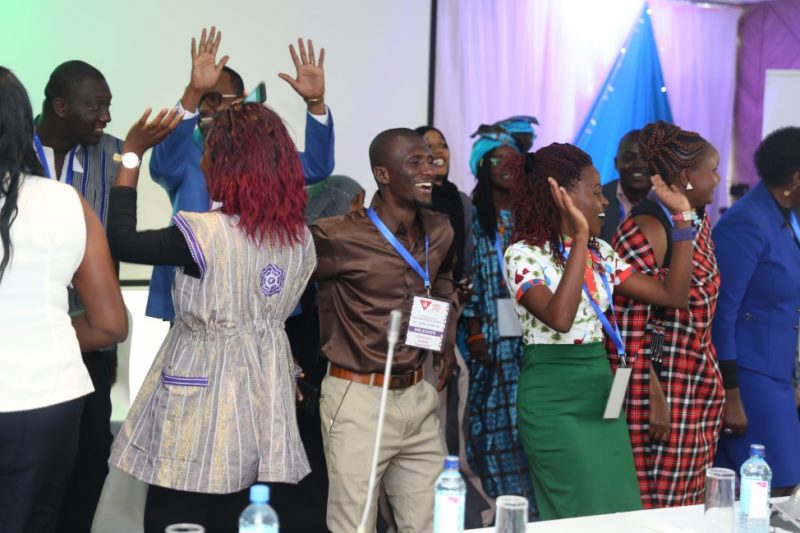The first ever Pan-African Anti-Female Genital Mutilation (FGM) Youth Summit was held in Nairobi, Kenya between 25-26 April at the Crowne Plaza. The event, which was organized by the Girl Generation, brought together young men and women from 17 countries in Africa, including Kenya, Sudan, Ethiopia, Egypt, Somaliland, Nigeria, Senegal, The Gambia, Sierra Leone, Uganda, Liberia, Ivory Coast and Tanzania.
I attended the Anti-FGM Youth Summit through Amref Health Africa in Kenya where I work with communities to end the practice of Female Genital Mutilation.
The young people in attendance at the Summit, which comprised of different cultures, backgrounds and nationalities, brought into perspective the struggles women and girls across Africa go through when it comes to sexual and reproductive health. The two-day summit was insightful, engaging and a great experience to say the least.
The purpose of this event (#YouthEndFGM) was was to catalyse youth collective action, reach, and influence and provide an opportunity to celebrate the change that is already taking place, share what has worked, amplify success, inspire others, explore and discuss what needs to done and show commitment by young people in Africa to ending FGM/Cutting in this generation.


Celebrating our achievements
One key message that was highlighted during the meeting was that the youth are the future and should be at the forefront of fighting against the practice of female genital mutilation. It’s high time for the youth to fearlessly fight to end this vice as they are the people who are affected.
It is also important to work closely with the youth who are change agents in every society by engaging them in advocacy, building their capacity in such forums like this to discuss similar issues that affect them in their respective countries, finding solutions to some of the emerging problems around FGM, such as medicalisation of FGM, calling for actions against the practice and sharing experiences across the continent.
During the Summit, representatives from each country focused on the prevalence of FGM in their countries. From the discussion it was clear that there is still high prevalence of FGM in the countries represented at the Summit. Young people, therefore, need to be at the forefront leading the fight by advocating for the end of FGM and demanding action from the society and governments.
Jaha Dukureh (@JahaENDFGM) of the Big Sisters movement encouraged the youth to continue working with cultural, religious and political leaders in fighting FGM.
We thrive in our diversities
The United Nations Population Fund (UNFPA) and other partners promised to support these young people to ensure we end FGM in Africa and demand action from our specific governments.
I highlighted the work that Amref Health Africa is doing in Kenya to end FGM through the Amref Alternative Rites of Passage projects currently being implemented in Kajiado and Samburu counties in Kenya and in Kilindi in Tanzania. Youth from different parts of Kenya suggested that this approach should be extended to their respective counties to increase the number of girls transitioning into womanhood without the cut.
This Summit was an eye opener to the youth and every one showed their commitment to fight FGM and keep girls in school.
Senegal Youth presenting their Anti-FGM banner
By: Diram Duba,
Project Assistant,
Amref Health Africa in Kenya.
During a session held at Africa Health Agenda International Conference in Kigali, Rwanda, on 4th…
Amref Health Africa, in collaboration with the Turkana County Department of Health Services, introduced the…
Amref Health Africa, in collaboration with the Turkana County Department of Health Services, introduced the…
Over the past six years, Amref Health Africa has positioned itself as a leading voice…
Africa has made significant strides in advocating for health research and development, yet gaps in…
Thousands of USAID contracts have been cut. African health leaders say the cuts aren't surprising.…